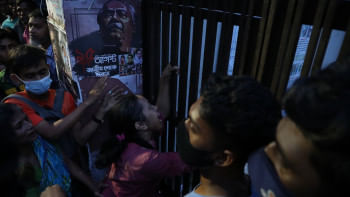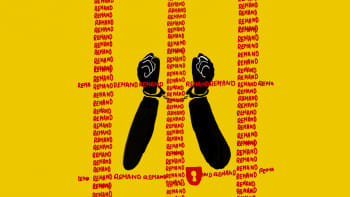What was Rajib Kar Raju's fault?

Looting. Torture. Extortion. You would expect these nefarious activities from hardened criminals, and not from those whose job it is to prevent them. But what happens when their roles are reversed? For Rajib Kar Raju – a jewellery shop worker who was allegedly looted, tortured, and extorted by three cops from Dhaka's Kotwali Police Station in 2019 – it means seeing his chance of justice slip further away, because of the impunity enjoyed by members of the police force in Bangladesh. This is quite disturbing.
Although the authorities claim to have taken action after every such misconduct/crime, the truth is, justice has been neither visible nor promptly and proactively served in most cases.
Rajib Kar is but one of the many victims of custodial torture in Bangladesh. In interviews and official letters and complaints, he described how two police officers in plainclothes raided his house in the capital's Goalnagar area on February 10, 2019, and took 28 tolas of gold jewellery and Tk 41,300 cash from his possession. Then, they took him to the police station where another cop joined them as they beat him mercilessly and left him unconscious. Then, he was tortured again and given electric shock. Later, they demanded Tk 5 lakh for his release, of which he was able to pay Tk 2 lakh. Till date, Rajib doesn't know why he was targeted, nor did he get back the looted gold or money.
The second part of his ordeal began after he sought to bring his tormentors to justice. He wrote to the National Human Rights Commission, which was unable to elicit a response from the home ministry and police headquarters. He approached them all, unsuccessfully. Finally, on March 2, he managed to file a case with a Dhaka court under the Torture and Custodial Death (Prevention) Act. Since then, Rajib says, he received phone calls from people identifying themselves as police officers threatening him to withdraw the case. Given these impediments and the extremely slow pace of investigation – a common feature in cases related to police misconduct – there is no guarantee that Rajib will get justice anytime soon.
All this is a sobering reality check for those who hoped things would change for the better after a historic verdict, two years ago, sentenced five policemen to various jail terms over the custodial death of Ishtiaque Hossain Jonny. Since then, there has been little substantive change in terms of accountability for the police force. We have had various reports of custodial torture and even death. Members of the police force, including the Rapid Action Battalion, were often flagged for misconduct and use of excessive force. Although the authorities claim to have taken action after every such instance, the truth is, justice has been neither visible nor promptly and proactively served in most cases. Also, the standard official response has been mostly reactive rather than preventive, which is really ill-suited to the needs of our time.
We urge the higher authorities to expedite Rajib Kar Raju's case and all such cases so that justice can be delivered swiftly. The victims also need protection against their powerful tormentors, as well as legal and monetary support. The government must deal with errant police officials with the highest priority.

 For all latest news, follow The Daily Star's Google News channel.
For all latest news, follow The Daily Star's Google News channel. 









Comments